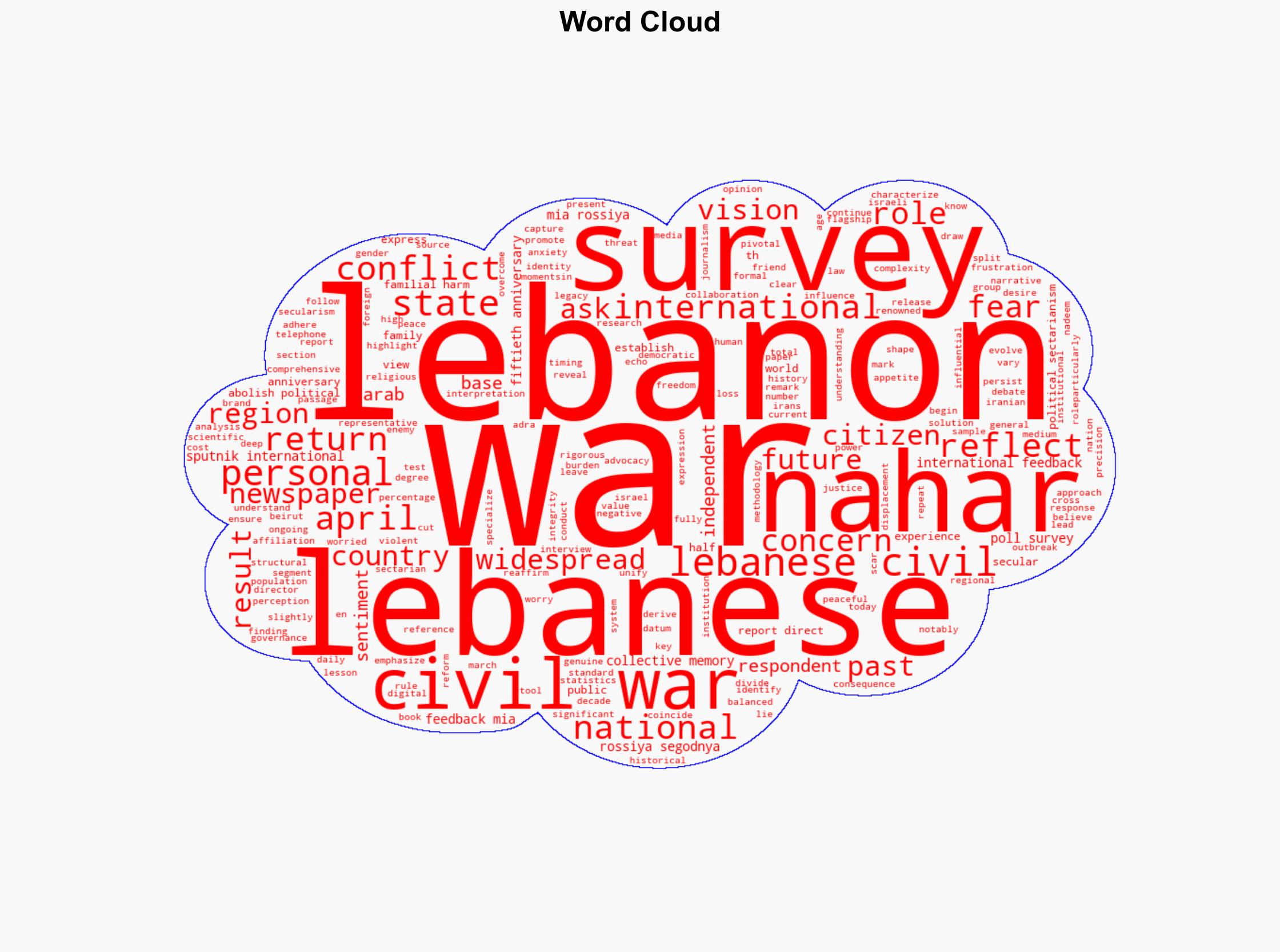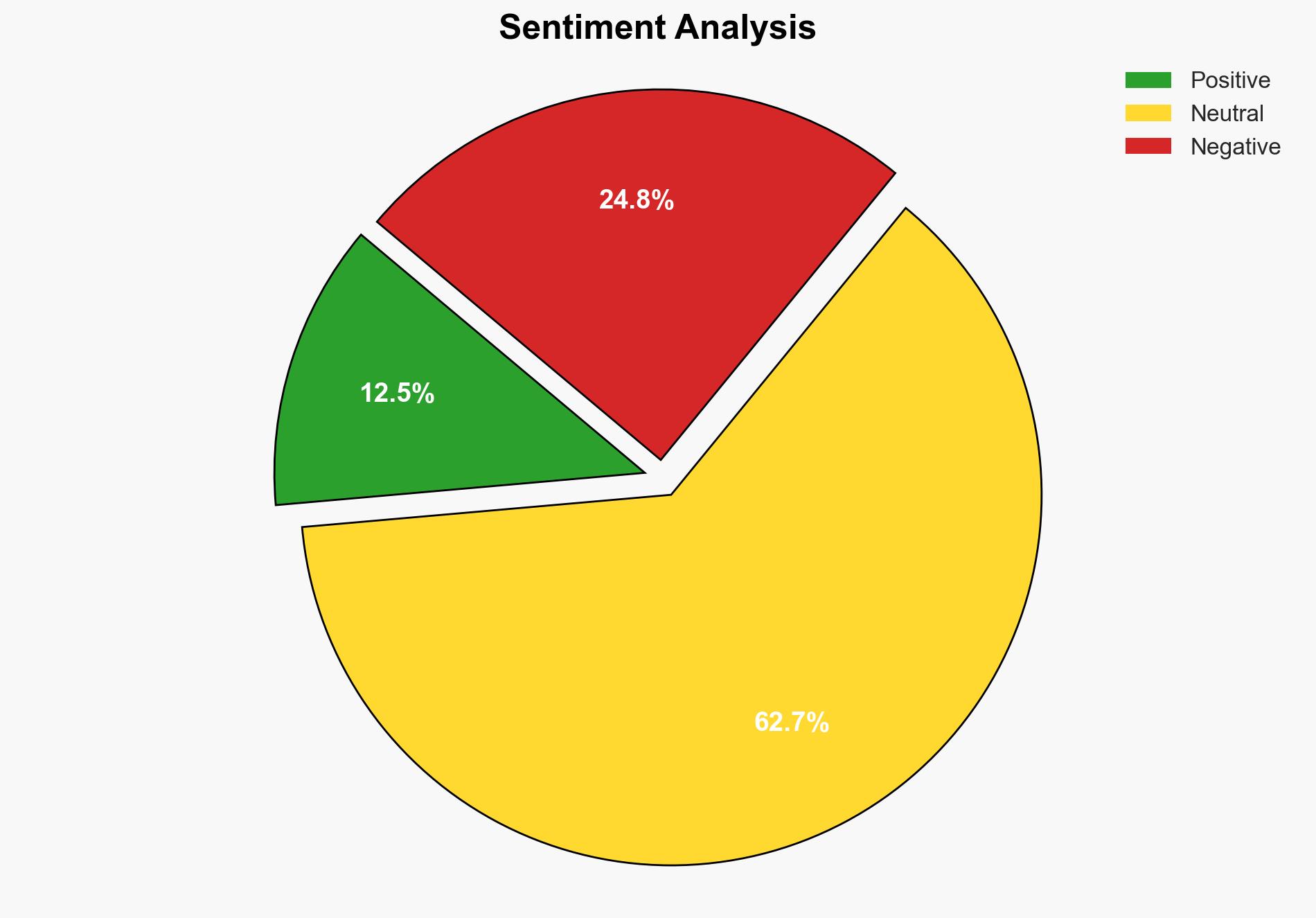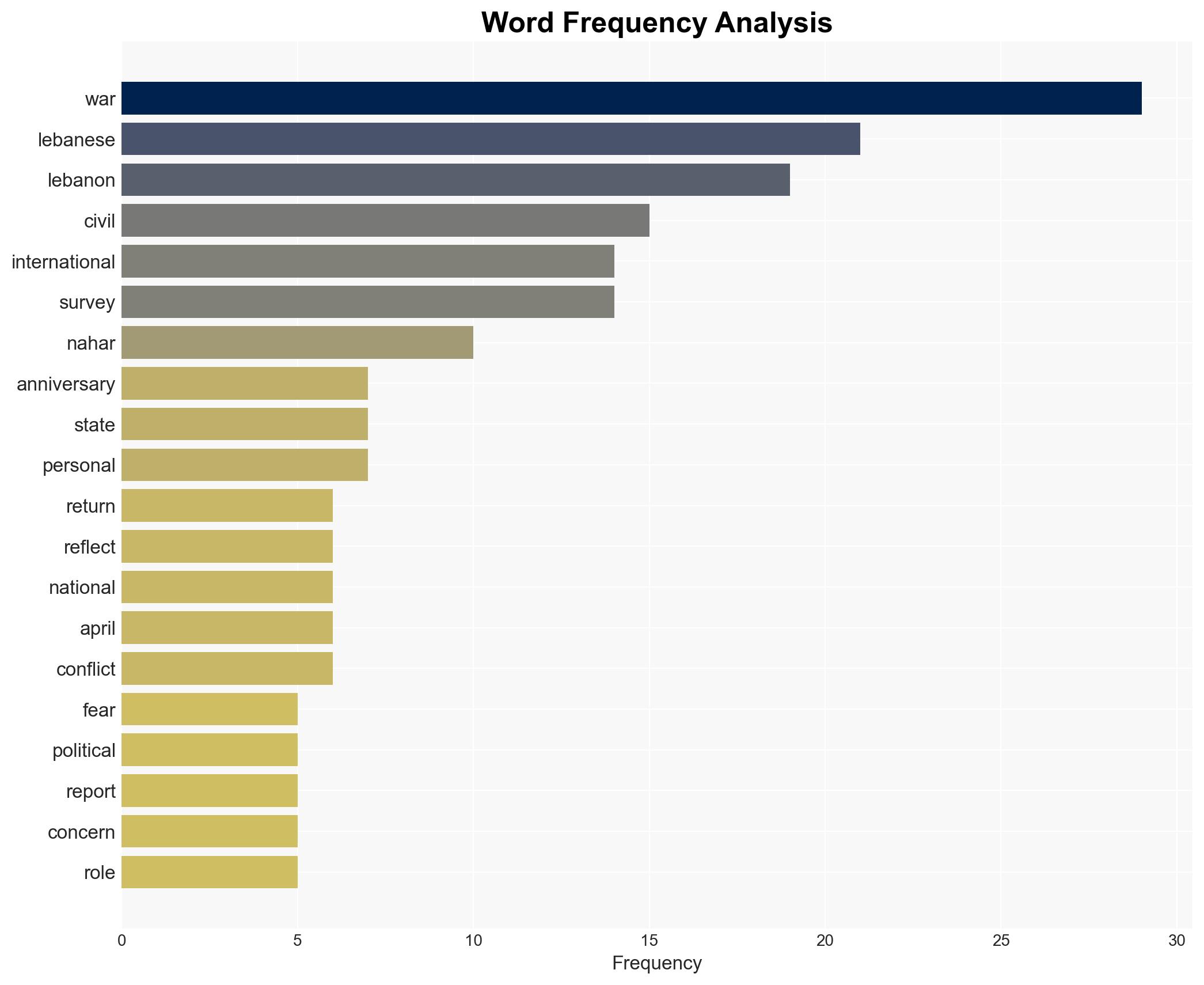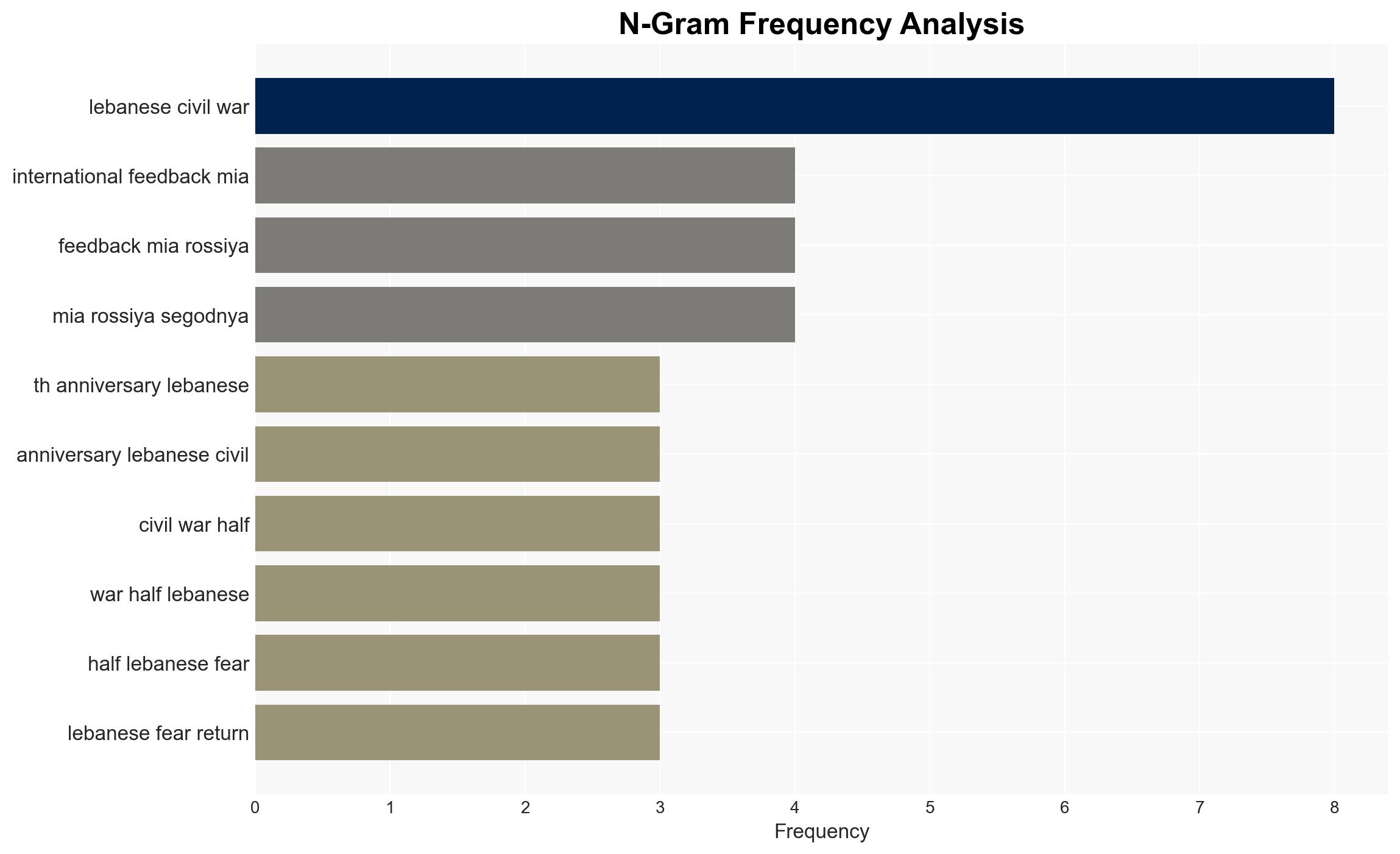On the 50th Anniversary of the Lebanese Civil War Over Half of Lebanese Fear Its Return – Sputnikglobe.com
Published on: 2025-04-11
Intelligence Report: On the 50th Anniversary of the Lebanese Civil War Over Half of Lebanese Fear Its Return – Sputnikglobe.com
1. BLUF (Bottom Line Up Front)
On the 50th anniversary of the Lebanese Civil War, a national survey reveals that over half of the Lebanese population fears the potential return of conflict. The survey indicates a strong desire for political reform, with a significant majority advocating for the abolition of political sectarianism in favor of a secular civil state. These findings underscore the persistent anxieties and divisions within Lebanese society, posing potential risks to national stability.
2. Detailed Analysis
The following structured analytic techniques have been applied for this analysis:
General Analysis
The survey conducted by An-Nahar and Information International provides a comprehensive insight into the Lebanese public’s perception of the civil war’s legacy and the current socio-political climate. Key findings include:
- 81.9% of respondents derive their understanding of the war from family and friends, highlighting the role of personal narratives in shaping collective memory.
- 51.7% express concern about the potential return of conflict, with 25.8% being “very worried.”
- 63.3% support the establishment of a secular civil state, indicating widespread dissatisfaction with the sectarian political system.
- 42.5% report direct personal or familial harm from the war, reflecting the deep scars left by the conflict.
3. Implications and Strategic Risks
The survey results suggest several strategic risks and implications:
- National Security: The persistent fear of conflict could destabilize national security, particularly if political reforms are not implemented.
- Regional Stability: The influence of foreign powers, notably Iran and Israel, remains a contentious issue, potentially exacerbating regional tensions.
- Economic Interests: Political instability and sectarian divisions could hinder economic development and foreign investment.
4. Recommendations and Outlook
Recommendations:
- Encourage dialogue and reconciliation efforts to address historical grievances and promote national unity.
- Support initiatives aimed at political reform, particularly those advocating for a secular civil state.
- Enhance security measures to prevent potential conflict and mitigate foreign influence.
Outlook:
Best-case scenario: Successful implementation of political reforms leads to increased stability and economic growth.
Worst-case scenario: Failure to address sectarian divisions results in renewed conflict and regional instability.
Most likely outcome: Gradual progress towards reform with ongoing challenges related to sectarianism and foreign influence.
5. Key Individuals and Entities
The report references significant individuals and organizations involved in the survey and analysis, including An-Nahar and Information International. These entities play a crucial role in shaping public discourse and understanding of Lebanon’s socio-political landscape.




